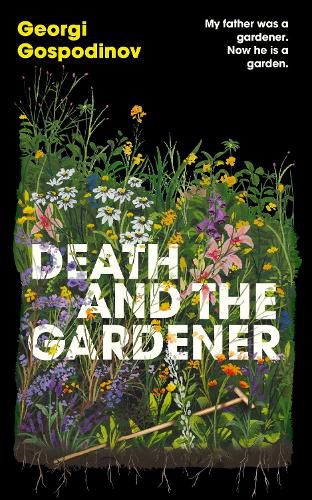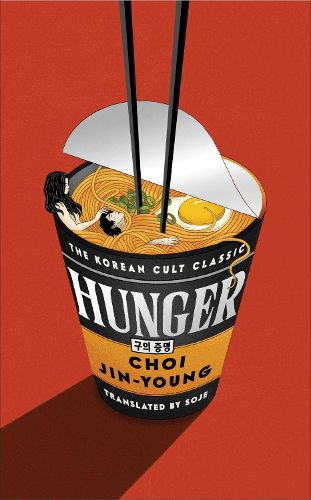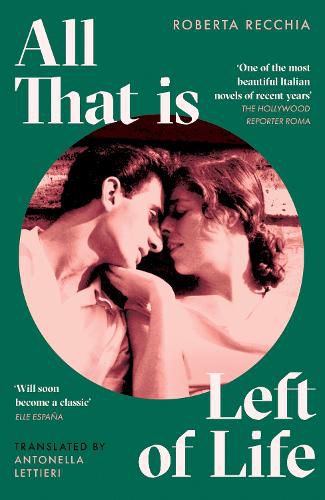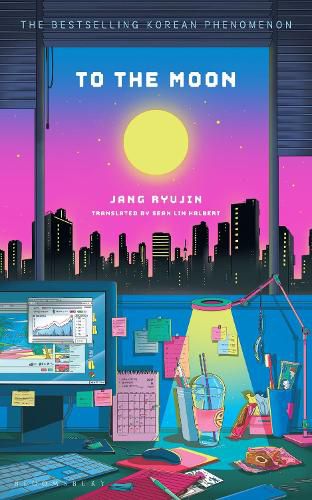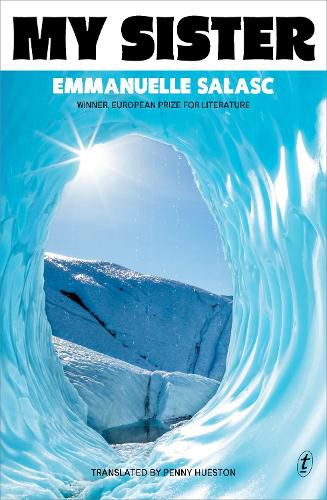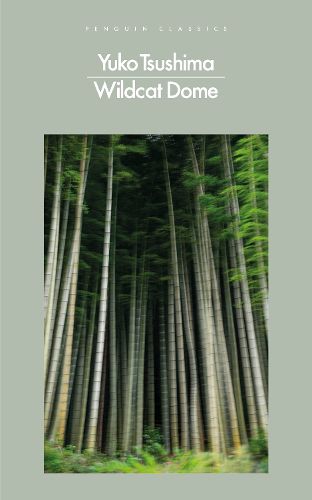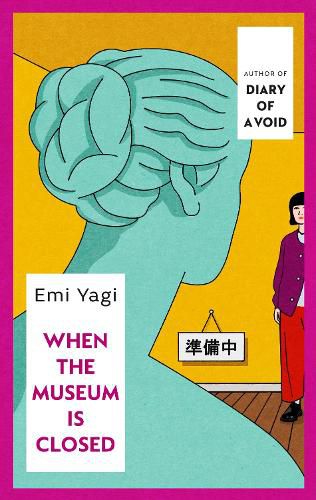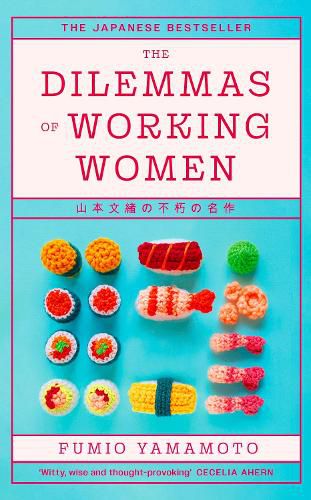This month we're reading fiction translated from: Korean, Bulgarian, Italian, French and Japanese.
Death and the Gardener
Georgi Gospodinov, translated from Bulgarian by Angela Rodel
My father was a gardener. Now he is a garden.
A man sits by his father's bedside and reports radically and gently until a final winter morning. His father was one of that generation of tragic smokers born right after the World War II in Bulgaria, who clung to the snorkels of their cigarettes. A rebel without a cause, he knew how to fail with heroic self-deprecation.
The garden he created out of a barren village yard first saved him, then killed him It remains his living legacy: peonies and potatoes, roses and cherry trees – and endless stories. But without him, his son's past, with all its afternoons, began to quietly crack. Because the end of our fathers is the end of a world.
Read our staff review here.
Hunger
Choi Jin-young, translated from Korean by Soje
It begins at the end. When Dam discovers her boyfriend, Gu, murdered on the street by loan sharks, time stops – until she cradles the resplendent corpse in her arms, carries it home and begins to speak. A string of monologues stretches between this realm and the next, binding two souls in the story of a love starved by life, until death do them part – or part by part …
At the end, Dam confesses: she has slowly been eating the ritually bathed and embalmed corpse cradled to her chest, choosing to entomb Gu in herself – where he will now live on, forever. At once romantic and horrific, Hunger is a psychologically and philosophically thrilling Korean cult classic that cuts to the very heart of love and the things we do for it.
Read our staff review here.
All That is Left of Life
Roberta Recchia, translated from Italian by Antonella Lettieri
The Ansaldo family's contented life is built on routine, with days spent running their beloved delicatessen and summers at their modest house by the sea. But when sixteen-year-old Betta sets off for a beach party and never returns, they are left only with grief – and questions.
The town whispers, the police are lost, and as the family fractures under the weight of their loss, no one suspects the burden Miriam carries. She has answers, but vows to tell no one, even those who loved Betta most. Seeking to bury her heavy secret, Miriam drifts into the orbit of Leo, a young drug dealer, and gains an unlikely set of friends. But when Leo starts to pull loose the threads of Betta's fate, will his search for the truth offer Miriam a way forward or risk unravelling everything?
To the Moon
Jang Ryujin, translated from Korean by Sean Lin Halbert
In Seoul, three women in their thirties meet while working mundane jobs at a snack manufacturer. They become fast friends, taking their conversations out of the group chat as they bond over their 'average' employee report cards, the incompetence of their male team leader, and a mutual longing for financial freedom amid mediocre raises.
Eun-sang, the eldest of the group, is always looking for ways to earn extra money, but faces trouble at work after she opens a mini mart at her desk. Jisong, the youngest, dreams of a perfect romance with her Taiwanese boyfriend and spends her low salary on trips to Taipei. Meanwhile, Dahae is struggling to support her injured mother, and searches endlessly for a better apartment she can actually afford.
One day over lunch, Eun-sang announces a plan to make enough money to quit her job, by investing her life's savings in cryptocurrency. What's more, she thinks the others should join her. All they need to do, she says, is hold on tight and wait for the price to skyrocket to the moon. But as the market begins to fluctuate and spiral out of their control, the fate of their friendships and their futures soon hangs in the balance.
Read our staff review here.
My Sister
Emmanuelle Salasc, translated from French by Penny Hueston
After a thirty-year absence, Clémence returns to the remote mountain where she and her twin sister Lucie were born and where Lucie still lives. Then the siren goes off, the dreaded warning that the glacier above their village is about to crack, and soon destroy everything in its path. Lucie is desperate to evacuate, along with the rest of the villagers, but Clémence insists they stay. She says she’s on the run – no one must know she’s come back.
The two women are trapped. One terrified, one strangely calm, they shelter together beneath the glacier, surviving on dwindling supplies. As catastrophe looms over them, the sisters’ lifelong conflicts return. But which one is telling the truth about their past? My Sister is a novel about siblings who both fear and love each other.
Wildcat Dome
Yuko Tsushima, translated from Japanese by Lisa Hofmann-Kuroda
Mitch and Yonko haven't spoken in a year. As children, they were inseparable, raised together in an orphanage outside Tokyo – but ever since the sudden death of Mitch's brother, they've been mourning in their private ways, worlds apart. In the aftermath of the Fukushima nuclear catastrophe, they choose to reunite, finding each other in a city undone by disaster.
Mitch and Yonko have drifted apart, but they will always be bound together. Because long ago they witnessed an unspeakable tragedy, a tragedy that they've kept secret for their entire lives. They never speak of it, but it's all around them. Like history, it repeats itself.
Read our staff review here.
When the Museum is Closed
Emi Yagi, translated from Japanese by Yuki Tejima
Rika Horauchi's new part-time job is to converse with a statue of Venus – in Latin – every Monday, when the museum is closed.
Initially reluctant, Rika starts to enjoy her strange new job. Recommended by her old university professor for her exemplary language skills, Rika leads an otherwise unassuming life, working the rest of the week in a frozen-food warehouse. As Venus comes to life in the quiet of the museum, they talk about everything. Venus opens up new worlds for Rika, both intellectually and emotionally. They soon fall in love. But when the museum's curator, Hashibami, makes it clear he wants to keep Venus for himself, what will Rika do?
A quirky, joyful queer love story about a lonely museum worker who falls in love with a statue of Venus, from the author of cult hit Diary of a Void.
The Dilemmas of Working Women
Fumio Yamamoto, translated from Japanese by Brian Bergstrom
Izumi needs to get a job. Haruka needs to stop talking about how she once had cancer. Kato needs to get through a shift at the convenience store without being harassed. Mito needs to break up with her boyfriend – or marry him. Sumie just needs somewhere to live.
In this classic Japanese bestseller, published in English twenty-five years after it took Japan by storm, the lives of five ordinary women are depicted with irresistible humour and searing emotional insight.
Read our staff review here.
📚 More translated fiction can be found here.


